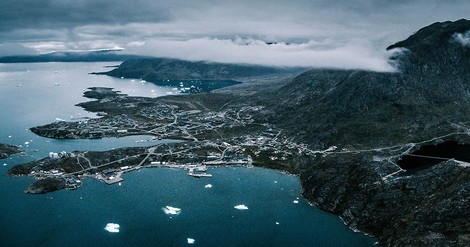Your podcast discovery platform
Curious minds select the most fascinating podcasts from around the world. Discover hand-piqd audio recommendations on your favorite topics.

piqer for: Globalization and politics Global finds
I am an Australian freelance journalist focussing on conflicts, politics, and warzones around the world. I have been working as a journalist for over 5 years, having reported from Australia, Germany, China, Egypt, Palestine, and Ukraine. I am especially interested in the way that new technologies are being used in conflict zones in unexpected and often disturbing ways. During my time working as a journalist, I also co-founded open-source war reporting site Conflict News.
Greenland Needs Money. Is A Uranium Mine The Answer?
Greenland, despite its exaggerated size on most world maps, is not somewhere given much attention by the world media. Yet the Arctic island might just be the next newest country in the world.
Over the past few years, the population of Greenland, which numbers at around 56,000, has been slowly moving towards independence. In 2009 Greenland was granted self-rule from Denmark for most issues beyond foreign policy and defence, and then last year it won a decision in Danish parliament allowing Greenland to retain revenues from resource extraction.
Greenland now lies at a crossroads. With global temperatures rising and ice sheets receding, the island is becoming more and more habitable. As well, minerals companies are discovering that the mainly indigenous population of Greenland is sitting on a wealth of natural resources, previously trapped under the ice. But exploiting these resources will cause immense environmental damage to what was (until now) an untouched, pristine wilderness.
Nowhere is this quandary more evident than in the town of Narsaq in the south of Greenland. There, a joint Australian–Chinese mining consortium wants to build a uranium and rare-earth mineral open pit mine. Potentially this mine could bring large numbers of jobs to the community, and perhaps enough money for the Greenland government to declare independence.
Michael Oneal's article takes the reader on a tour of the economically blighted town and compares the views of its residents on the development of the mine. Some are hopeful for the future, while others are pessimistic and fearful about the environmental damage it will cause.
Whatever ends up happening, this article is nonetheless an interesting and unique depiction of how globalisation and business interests can reach even into the farthest and coldest corners of the world.
